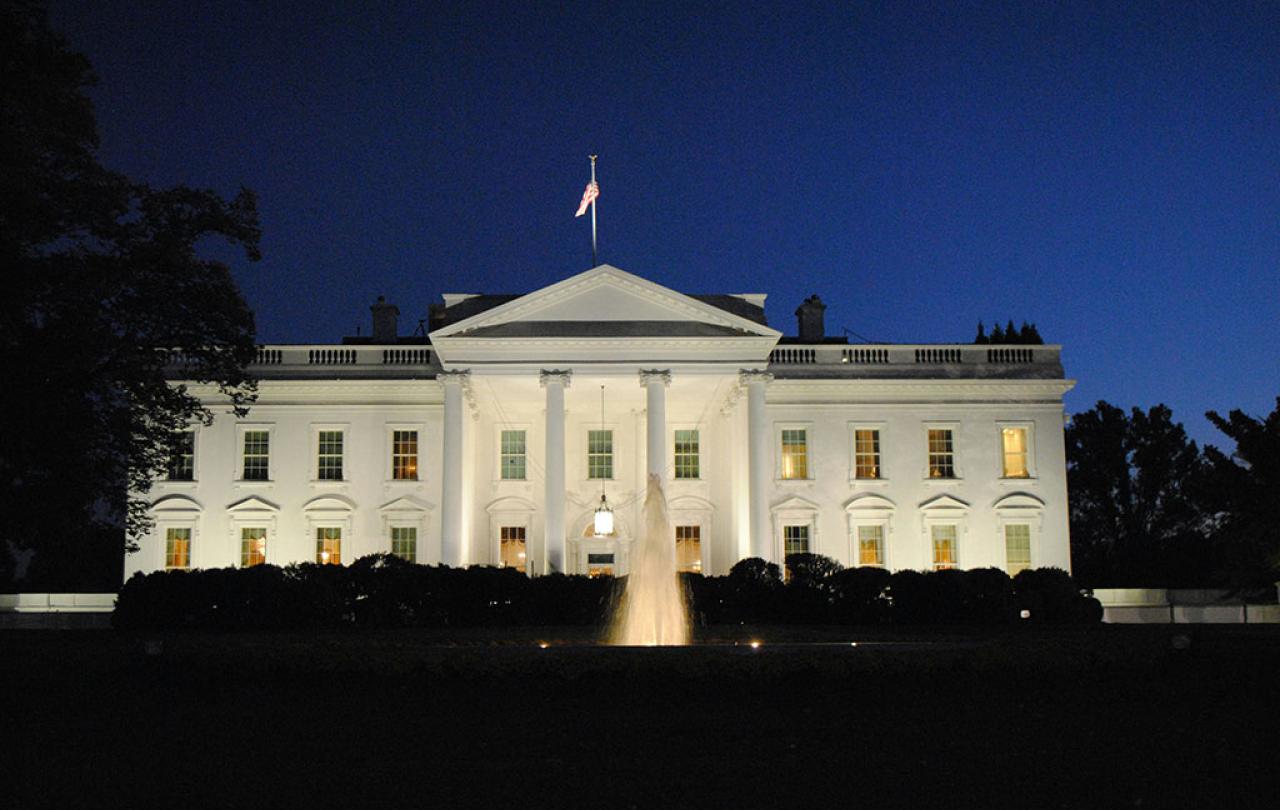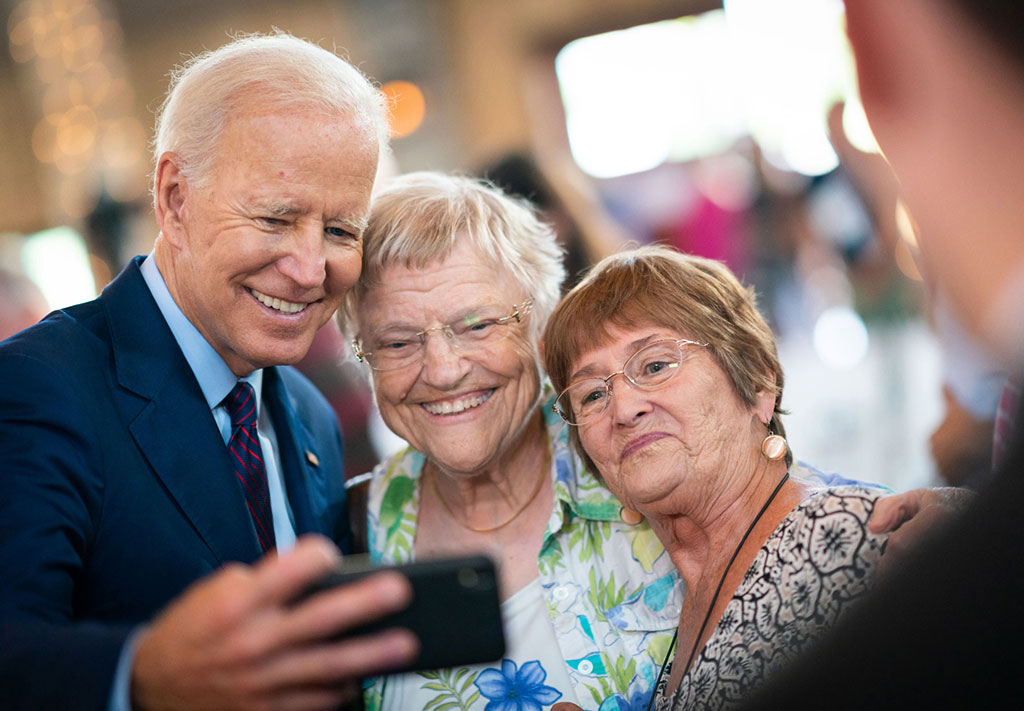
‘There is no higher power,’ says a character defiantly in People Places & Things, the revival of Duncan Macmillan’s 2015 play about addicts and addiction. It’s an echo from Greek tragedy when anyone denies the gods, and now has a modern ring in all the self-help, self-belief talk of recovery and resolve.
Denise Gough reprises her lead performance as Emma for which, last time around, she swept the board in awards and nominations. It’s easy to see why. She’s on stage almost the entire time, compelling and fluent throughout. The opening scene has her in the white-box modern set wearing a Victorian costume, for her character is an actress in Chekhov’s The Seagull – almost meta, and the first hint and how this a show where realities and identities blur with layers upon layers.
Soon after, Emma (if that is her real name) checks into a rehab unit. She doesn’t feel she has a problem but is there for a break. ‘Drugs and alcohol have never let me down,’ she says at one point. A brisk female doctor in a white coat admits her, played by Sinéad Cusack. A couple of scenes later, Cusack reappears as the clinic’s group therapist. This time she’s full of empathy – barefoot and with a scarf over one shoulder – all herbal tea and sympathy.
But the therapist’s work with her charges is vital. Some even get to ‘graduate’ and host a non-alcoholic party the night before they leave, having successfully stayed the course. Probably not Emma though. She’s too feisty, individually unable to admit her problems, and inevitably she crashes. There’s a naturalistic feel to the production and narrative, even when it jolts into dream-like sequences or bright lights with thumping techno music.
Anyone with experience of an addict or addiction will find it all too familiar. The later scene where Emma returns to the parental home is a crucible of pain, and embodies the play’s title. It concerns ‘the people who can make us relapse, the places which trigger associations, and the things which are the props of the old habits’. And it’s made more complex by the family in grief over the recent, sudden death of Emma’s beloved brother in a freak accident. ‘It should have been you instead’ is the parental curse on this remaining child.
There’s a slow and silent feel to the way it develops. The word inexorable comes to mind, something that cannot be changed or stopped. Like Greek tragedy, the tension is in how this will resolve, and if it will turn out as badly as feared. It does and it doesn’t, which is at least true to the addiction journey.
Jeremy Herrin expertly directs an intensely fine cast: Russell Anthony, Holly Atkins, Ryan Hutton, Malachi Kirby, Danny Kirrane, Paksie Vernon, Kevin McMonagle, Ayò Owóyemi-Peters, Lousie Templeton, Dillon Scott-Lewis. These are nuanced, crafted performances which inhabit Bunny Christie’s versatile, stylish set with presence.
What the healings have in common is the aftermath – a sense of vision restored, stability refound, new clarity...
Faith plays at the edges of this work. There are passing references to religion: a ‘bibling grief’, communion wine, the power of prayer. More tears, said St Teresa of Avila, are shed over answered prayers than unanswered ones, and this outward expression of a cry for help connotes the spiritual struggle of addicts along with their pity. As the first disciples themselves asked, ‘Teach us, Lord, how to pray.’
Addiction was not something Jesus had much to say about. Healings take place throughout each of the four gospels. The sufferers present with various ailments and of differing origins. For some it is hereditary, others through sin (such as when Matthew records Jesus healing a paralyzed man with the words ‘your sins are forgiven’). At other times there is a clear need for recognition such as when Jesus visits his hometown. He ‘laid hands on a few sick people and cured them’ but otherwise ‘could do no deed of power there… and was amazed at their unbelief’.
These healings, however, do not obviously deal with addiction. The closest connection is probably the examples which deal with demons. The encounter with a man possessed in the land of the Gerasenes, a little earlier, is instructive. Here is someone who ‘lived among the tombs; and no one could restrain him anymore, even with a chain; for he had often been restrained but the chains he wrenched apart; and no one had the strength to subdue him’. But Jesus confronts the demon, the ’unclean spirit’, and sends it into a herd of swine ‘numbering about two thousand, which then rushes to the sea and is drowned.
What the healings have in common is the aftermath – a sense of vision restored, stability refound, new clarity. The healed demoniac is found with Jesus, ‘sitting there, clothed and in his right mind’, though the swineherds do not believe it and remain scared. They beg Jesus to leave and the ex-demoniac wants to go with him, but Jesus tells him to stay: ‘Go home to your friends, and tell them how much the Lord has done for you, and what mercy he has shown you.’ He is to give his testimony.
Drama at its heart has to be about telling a story and finding a universal truth.
It’s a running debate that lived experience and life identity are now more important than acting ability when it comes to race, sexuality, gender and so on. Denise Gough has given testimony ahead of this run – how as a teenager she fled her native Wexford for London where she fell into homelessness, drug and alcohol abuse, and was the victim of grooming. She has told her story, with purpose, much as those people who experienced healing and deliverance gave their own account to the Early Church.
Drama at its heart has to be about telling a story and finding a universal truth. The gospels are full of this, with redemption and rehabilitation. Lives changed, sins forgiven, and a new future made possible. There is power in believing, and knowing that when someone might stumble and fall, it is not the end. In fact, it might just be the beginning.
People, Places & Things is on at the Trafalgar Theatre, Whitehall, London, SW1A 2DY, until 10 August 2024.






